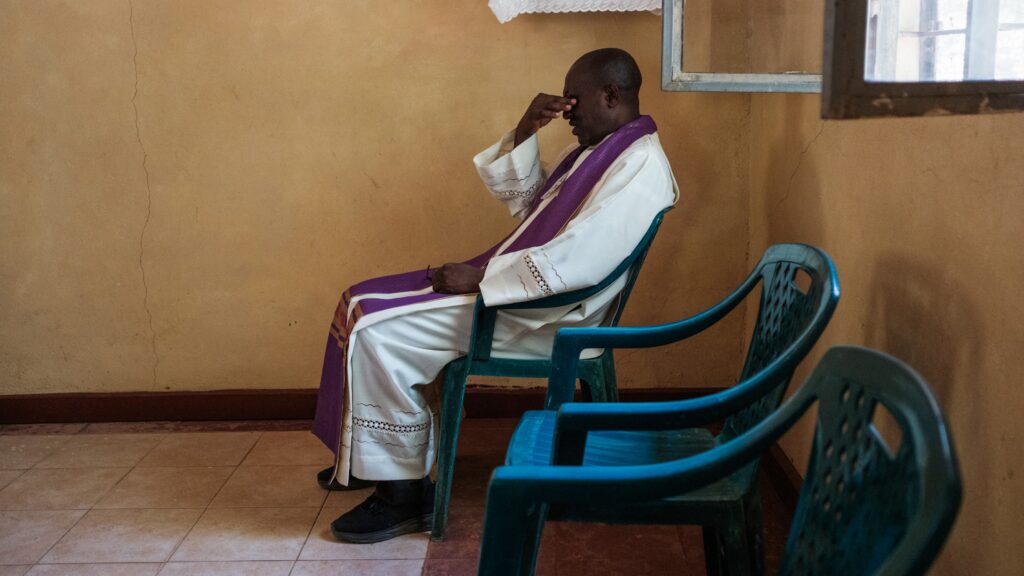There is no doubt that the outbreak of the COVID-19 pandemic has raised numerous problems and challenged many areas. However, one little-mentioned factor is not widely reported in the media, which is its impact on the persecution of Christians. According to the 2022 report of the Open Doors international and interdenominational organization, the number of persecuted Christians increased by 20 per cent in 2021 compared to the previous year and thus has reached the highest level since the launch of the organization’s first report 30 years ago. [i]
Since 1992, Open Doors has been gathering data and analyzing the situation of Christians in almost 100 countries and publish an annual report on the states where it is most difficult to follow Jesus. Although last year’s report already mentioned the harmful effects of the covid pandemic on religious persecution, the situation has worsened this year.[ii]The latest World Watch List was published in January 2022 and covers the period from October 2020 to September 2021. It measured the highest levels of persecution so far, with more than 360 million discriminated Christians from 76 countries.
The link between the epidemic and the persecution can be captured in the fact that with the emergence of Covid, people became even more vulnerable
Compared to previous years’ data, the most significant changes include the Taliban takeover in Afghanistan, causing a substantial deterioration in Christian persecution. Afghanistan had also taken over the leadership of the World Watch List from North Korea for the first time in 2022, which had held its position on the top of the list for 20 years, being the state that poses the greatest threat to Christians. Another significant factor highlighted in the list is the Covid crisis, which has made the free exercise of religion more complicated and is used as a cover by some governments to weaken the church. The link between the epidemic and the persecution can be captured in the fact that with the emergence of Covid, people became even more vulnerable and in need of help giving a ground for certain governments to exploit this vulnerability.
Although in the case of some countries on top of the list (Afghanistan, North Korea, Somalia, Lybia), other significant circumstances led to the intensifying of persecution, such as radical Islamist groups. In other countries, there is a direct link between the outbreak of the pandemic and the worsening discrimination that Christians have to face. These hot spots include Bangladesh, Central Asia, India, Malaysia, Myanmar, Nepal, North Africa, Pakistan, Sudan, Vietnam and Yemen.[iii] It is also worth noting that China has made it into the top 20 for the first time in the World Watch List 2022. As increasingly strict surveillance measures were introduced due to the pandemic, the government was able to monitor Christians and other religious minorities.
With the second largest Christian population in Asia, India is moving towards Hindu nationalism under the current government, leaving less room for the free practice of religion. Although being a Christian in India has been problematic since the intensifying Hindu extremism, the COVID-19 pandemic has put religious minorities into a more complex situation. The persecutors’ new weapons include the deliberate overlooking of Christians when distributing government aid, and in some extreme forms of disinformation, they were even accused of spreading the pandemic. According to Open Doors, at the beginning of 2020, it was even harder to reach the Christians in a difficult situation with aids due to the sudden lockdowns. At that time, the organization could contact 100,000 Christians, from which 80-90 per cent had already experienced discrimination in governmental food or medical aid.[iv]
China’s Social Credit System, which started to be actively implemented in the mid-2010s, opens new possibilities for state control
As having the most Christian believers in Asia, it is no exaggeration to say that a new era of persecution is unfolding in China as the country entered the World Watch List’s top 20 in 2022.[v] Ruled by the Chinese Communist Party, religious minorities, including the estimated 100 million Christians, are considered a threat to President Xi Jinping’s autocracy. China’s Social Credit System, which started to be actively implemented in the mid-2010s, opens new possibilities for state control. By applying the Social Credit System, the government can monitor every segment of its citizens’ lives, including their religious activities. For religious minorities, this includes digital persecution, disinformation and censorship.
The impact of the covid pandemic has been revealed in the increasing complexity of the Social Credit System, linking it to the health system. Encouraged by the success, the acquisition of social credits is getting more related to religious beliefs. As churches were forced to close during the pandemic in most countries globally, in China, they did not lift these restrictions though health conditions got better.[vi] Some sources say that China had taken advantage of the coronavirus emergency and used it as a mass distraction from issues such as the worsening situation of Chinese Christians and other religious minorities.[vii]
The examples of India and China had shown how Christian persecution got worse under the circumstances of religious nationalism and, on the other hand, under communist and post-communist oppression. Pakistan is the sad case study example of how the epidemic has worsened the situation of Christians in an Islamic country.
Pakistan is the eighth on the World Watch List 2022 is famous for its blasphemy laws, which accuses mainly non-Muslims (also some minority Muslim sects) of insulting the Quran. The already difficult situation of the four million Christians turned more complicated by the pandemic as medical aid was denied from them if they had not converted to Islam.[viii] The US Commission on International Religious Freedom (USCIRF) found that both Christian and Hindu communities are often denied food aid, arguing by the government that it is only for Muslims as charitable offerings of Zakat. [ix]
In conclusion, the study examined only a few cases, but in many other countries, the situation of Christians has worsened by covid. In the absence of official (government) data and statistics, it is only possible to rely on the reports of the various organizations dealing with the situation of human rights and religious minorities. In any case, there is no doubt that the pandemic outbreak has created a new trend in the persecution of Christians.
[i] Open Doors, World Watch List 2022, https://media.opendoorsuk.org/document/pdf/Advocacy%20Report-digital-wwl-2022.pdf?_ga=2.117504205.597435445.1643528364-859675.1643108580, accessed 9 Febr. 2022.
[ii] Emily McFarlan Miller, ‘Open Doors’ 2021 watch list highlights impact of COVID-19 on religious persecution worldwide’, Religion News Service, 2021, https://religionnews.com/2021/01/13/open-doors-2021-watch-list-highlights-impact-of-covid-19-on-religious-persecution-worldwide/, accessed 9 Febr. 2022.
[iii] Emily McFarlan Miller, ‘Open Doors’ 2021 watch list highlights impact of COVID-19 on religious persecution worldwide’, Religion News Service, 2021, https://religionnews.com/2021/01/13/open-doors-2021-watch-list-highlights-impact-of-covid-19-on-religious-persecution-worldwide/, accessed 9 Febr. 2022.
[iv] Christopher Summers, ‘COVID-19 devastates India – puts Christians in more danger’, 2021, https://www.opendoorsusa.org/christian-persecution/stories/covid-19-devastates-india-puts-christians-in-more-danger/, accessed 9 Febr. 2022.
[v] Open Doors, World Watch List 2022, https://media.opendoorsuk.org/document/pdf/Advocacy%20Report-digital-wwl-2022.pdf?_ga=2.117504205.597435445.1643528364-859675.1643108580, accessed 9 Febr. 2022.
[vi] World Watch Monitor, ‘Church surveillance, COVID-19 controls affect China’s Christians – 1 of 5 global trends’, 2021, https://www.worldwatchmonitor.org/2021/01/church-surveillance-covid-19-controls-affect-chinas-christians-1-of-5-global-trends/, accessed 9 Febr. 2022.
[vii] Nina Shea, ‘The Attempted Shutdown of China’s Christians’, National Review, 2022, https://www.nationalreview.com/magazine/2020/08/10/the-attempted-shutdown-of-chinas-christians/, accessed 9 Febr. 2022.
[viii] Open Doors, Pakistan, https://www.opendoorsusa.org/christian-persecution/world-watch-list/pakistan/, accessed 9 Febr. 2022.
[ix] Dipanjan Roy Chaudhury, ‘Denial of food to Hindus, Christians in Pakistan ’reprehensible’: US government’, 2020, https://economictimes.indiatimes.com/news/international/world-news/denial-of-food-to-hindus-christians-in-pakistan-reprehensible-us-government/articleshow/75139505.cms?from=mdr, accessed 9 Febr. 2022.








